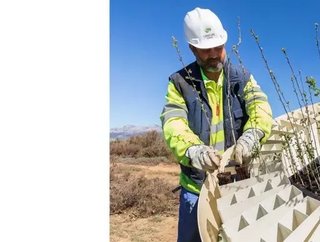Shell spells out its net zero emissions transition strategy

Shell's Strategy Day takes on a whole new meaning on Thursday as it sets out how it intends to transition to a net-zero emissions energy business by 2050.
Confirming that its total oil production peaked in 2019, the oil giant aims to reduce its net carbon intensity by 6-8% by 2023, 20% by 2030, 45% by 2035 and 100 percent by 2050.
The next decade will be pivotal as it needs to access an additional 25 million tonnes a year of CCS capacity by 2035 - more than 5 times the amount in the three projects of which Shell is a part, and only one, Quest in Canada, is currently in operation.
“Our accelerated strategy will drive down carbon emissions and will deliver value for our shareholders, our customers and wider society,” said Royal Dutch Shell Chief Executive Officer, Ben van Beurden.
“We must give our customers the products and services they want and need – products that have the lowest environmental impact. At the same time, we will use our established strengths to build on our competitive portfolio as we make the transition to be a net-zero emissions business in step with society."
The company "expects" its total carbon emissions peaked at 1.7 gigatonnes per year in 2018 and it will focus on nature-based solutions to offset emissions of 120 million tonnes a year by 2030. Shell said it will work with the Science Based Targets Initiative, Transition Pathway Initiative and others to develop industry standards and align with them.
As its portfolio is rebalanced, annual investment will be $5-6 billion in its Growth pillar (around $3 billion in Marketing; $2-3 billion in Renewables and Energy Solutions), $8-9 billion in its Transition pillar (around $4 billion Integrated Gas; $4-5 billion Chemicals and Products) and around $8 billion in Upstream. The breakdown is as follows:
Marketing
- Target to increase Adjusted Earnings to around $6 billion by 2025 (from $4.5 billion in 2020), achieved by improving the strong position of the lubricants business, an increase to 40 million customers at 55,000 retail sites (from 30 million at 46,000 sites today) and growth of global EV network from more than 60,000 charge points today to around 500,000 by 2025.
- Low-carbon fuels – extend its biofuels production and distribution business, which in 2019 sold more than 10 billion litres of biofuels. Its Raízen joint venture, which produces low-carbon fuels from sugar cane in Brazil, recently announced the acquisition of Biosev, which will increase Raízen’s bioethanol production capacity by 50%, to 3.75 billion litres a year, around 3% of global production.
Renewables and Energy Solutions
- Integrated Power – aim to sell some 560 terawatt hours a year by 2030 which is twice as much electricity as it sells today. Shell expects to serve more than 15 million retail and business customers worldwide and be a leading provider of clean Power-as-a-Service and make investments go further through partnerships. Last month Shell bought Ubitricity (click here) and it plans to operate 500,000 EV charging points globally by 2025.
- Nature-based solutions – expect to invest around $100 million a year in high-quality, independently verified projects on the ground to build a significant and profitable business to help customers meet their net-zero emissions targets.
- Hydrogen – build on Shell’s leading position in hydrogen by developing integrated hydrogen hubs to serve industry and heavy-duty transport, aiming to achieve double-digit share of global clean hydrogen sales.
Transition
Integrated Gas
- Extend leadership in LNG volumes and markets, with selective investment in competitive LNG assets to deliver more than 7 million tonnes per annum of new capacity on-stream by middle of the decade. Continue to support customers with their own net-zero ambitions, with leading offers such as carbon-neutral LNG.
Chemicals and Products
- Transform its refinery footprint from 13 sites today to six high-value Chemicals and Energy Parks and reduce production of traditional fuels by 55% by 2030. Intention to grow volumes of the chemicals portfolio and increase cash generation from Chemicals by $1-2 billion a year by 2030 compared with the medium term. Produce chemicals from recycled waste, known as circular chemicals, and by 2025 aim to process 1 million tonnes a year of plastic waste annually.
Upstream:
- Focus on value over volume, being simpler and more resilient, continuing to provide material cash flow into the 2030s. An expected gradual reduction in oil production of around 1-2% each year, including divestments and natural decline.
The transition follows last week's results in which Shell a $4.8 billion annual loss in 2020, a fall of 71% and its lowest in 16 years, on account of the pandemic and falling oil prices and demand (click here).
bp is embarking on a similar transition, by reducing emissions in operations, improving products to help customers lower their emissions and creating low carbon businesses (click here).
The International Energy Agency estimates that energy efficiency could contribute around 40% of the emissions reductions needed to stay below the 2 degrees celsius goal.
The Energy Transition Plan will be put to shareholders for an advistory vote at this year's AGM.






